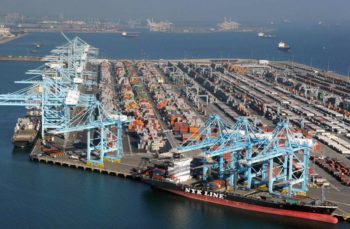 Investors have gone from contemplating the prospect of oil at US$100 to sub-US$50 in less than two months. No wonder global markets are playing catch-up.
Investors have gone from contemplating the prospect of oil at US$100 to sub-US$50 in less than two months. No wonder global markets are playing catch-up.
From stocks and bonds to currencies, assets worldwide are gripped by a crude awakening.
Monday saw oil’s largest one-day drop in three years, securing its longest losing streak on record. —Bloomberg, 14 November 2018
Back in 2015, we coined the term “shale price band” to describe the economic reality of US crude oil production. Our theory is that the price of US crude in the era of shale oil will stay in a price band between $40 a barrel and $60 a barrel. A price move below $40 a barrel will trigger a supply reduction as projects become uneconomic, while a move above $60 a barrel will accelerate the pace of US crude oil production growth to a level that will ultimately crash prices back down to the band in order to temper production. —Olivier Jakob, Financial Times, 14 November 2018
Relentless American shale development is set to allow the U.S. to leapfrog the world’s other major oil and gas producers, with the potential for the country to account for roughly half of global crude and natural growth by 2025, the International Energy Agency said Tuesday. —The Wall Street Journal, 13 November 2018
By the end of 2019, the United States will become one of the world’s three largest exporters of liquefied natural gas. Qatar, which has been the globe’s biggest LNG producer until now, will begin implementing a more aggressive strategy next year in the face of competition from the United States and Australia. —Stratfor, 9 November 2018
China’s biggest energy producers are tapping more tight oil and gas wells, aiming to increase domestic oil and natural gas production at the world’s largest crude oil importer and what will soon be the world’s top natural gas importer. —OilPrice.com, 7 November 2018

















The shale revolution is just the latest. I’ll bet that Russian production increased significantly since the collapse of communism there. Conversely, Canadian oil production is being stifled by socialist Trudeau and his alliance with radical environmentalists. Canada was united by the Canadian Pacific Railway, and is being torn apart by pipeline politics.
Guess it shows what happens what happens with a free market where independent producers can decide to add supply when the prices go up. Didn’t happen when OPEC had pretty much complete control over the marginal production of oil while the US companies were already maxed out in their (small) production amounts. Now with fracking US companies can crank up production pretty quickly as has happened as the price of oil started to reach $100/bbl.